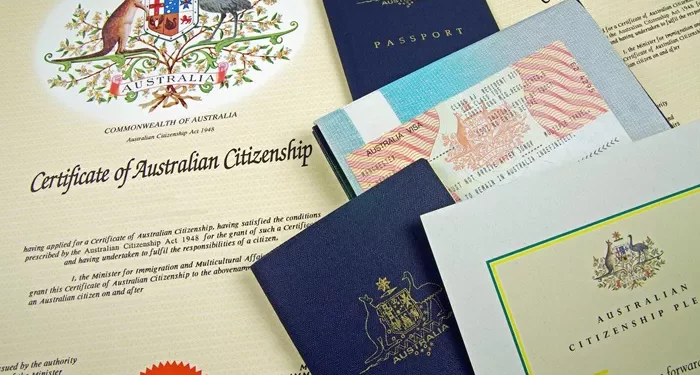When it comes to Americans planning a trip to Australia, the question of whether US citizens need a visa to Australia is an important one. The situation is somewhat nuanced, as there are different types of travel and associated entry requirements.
Types of Visas and Exemptions for US Citizens
Electronic Travel Authority (ETA): For many US citizens traveling to Australia for tourism or business purposes for short stays, an Electronic Travel Authority (ETA) is applicable. The ETA allows for multiple visits to Australia within a 12 – month period, with each visit usually limited to three months. It is an electronic visa waiver that enables eligible travelers to enter Australia without the need for a traditional visa. This is a convenient option as it can be obtained online quickly and easily. The application process typically requires basic personal information, such as passport details. However, it’s important to note that even with an ETA, there are still conditions that must be met. For example, travelers must not have a criminal record that would make them ineligible for entry under Australian immigration laws.
Visitor Visa (Subclass 600): In some cases, US citizens may need to apply for a Visitor Visa (Subclass 600). This might be necessary if they are planning to visit Australia for purposes not covered by the ETA, such as for medical treatment, to study for a short period, or for other specialized types of visits. The Visitor Visa application process is more detailed than that of the ETA. It requires providing information about the purpose of the visit, travel itinerary, proof of financial capacity to support the stay in Australia, and evidence of ties to the United States to ensure that the traveler will return after the visit. For instance, if a US citizen is traveling to Australia to attend a specialized medical program that lasts longer than what the ETA allows, they would need to apply for this type of visa.
Student Visas: If a US citizen is planning to study in Australia for an extended period, a Student Visa (Subclass 500) is required. This involves being accepted by an Australian educational institution first. The institution will provide a Confirmation of Enrolment (CoE), which is a crucial document for the visa application. The student will also need to demonstrate financial capacity to cover tuition fees, living expenses, and other related costs during the study period. Additionally, meeting specific English language proficiency requirements may be necessary, depending on the course. This visa is designed to ensure that international students can support themselves and successfully complete their studies without becoming a burden on the Australian education system.
Work Visas: For US citizens seeking to work in Australia, various work visas are available depending on the nature of the job and the skills they possess. For example, the Temporary Skill Shortage (TSS) Visa (Subclass 482) is for those who have skills that are in demand in the Australian labor market and have been sponsored by an Australian employer. The employer must demonstrate a genuine need for the worker’s skills and must meet certain sponsorship requirements. Another option could be the Skilled Independent Visa (Subclass 189) for those who have highly sought – after skills and can meet the points – based system requirements without employer sponsorship. In either case, the visa application process involves skills assessment, meeting specific eligibility criteria related to age, education, work experience, and English language proficiency.
Special Circumstances and Considerations
Criminal Record and Character Checks: Australian immigration authorities conduct checks on the character of all travelers, including US citizens. Even if an American is eligible for an ETA or another type of visa, having a criminal record can affect their entry. In some cases, a criminal record may lead to the refusal of an ETA or require additional scrutiny during the visa application process. For example, if a US citizen has a conviction for certain types of crimes, such as drug – related offenses or violent crimes, it could impact their ability to enter Australia.
Travel History and Intentions: Past travel history can also play a role. If a US citizen has a history of overstaying visas in other countries or has shown patterns of behavior that raise concerns about their intentions to comply with Australian visa conditions, it may lead to more careful examination of their application. Additionally, the stated purpose of the visit and the credibility of the travel itinerary are important. If there are discrepancies between what is stated in the application and the actual circumstances, it could cause issues during the entry process.
The Importance of Complying with Visa Requirements
It is crucial for US citizens to understand and comply with the visa requirements for Australia. Entering the country without the appropriate visa or failing to meet the conditions of the visa can have serious consequences. These can include being refused entry at the border, deportation, and potential bans on future entry. For example, if a US citizen arrives in Australia with an ETA but engages in activities that are not permitted under the ETA, such as working without the proper authorization, they could face significant problems.
Conclusion
While many US citizens can take advantage of the Electronic Travel Authority for short – term tourism and business visits to Australia, there are various circumstances that may require a different type of visa. Whether it’s for study, work, or specialized types of travel, understanding the specific visa requirements and complying with them is essential to ensure a smooth and trouble – free entry into Australia. US citizens should carefully consider their travel plans and seek professional advice if they are unsure about the visa they need.
Related Topics:




















